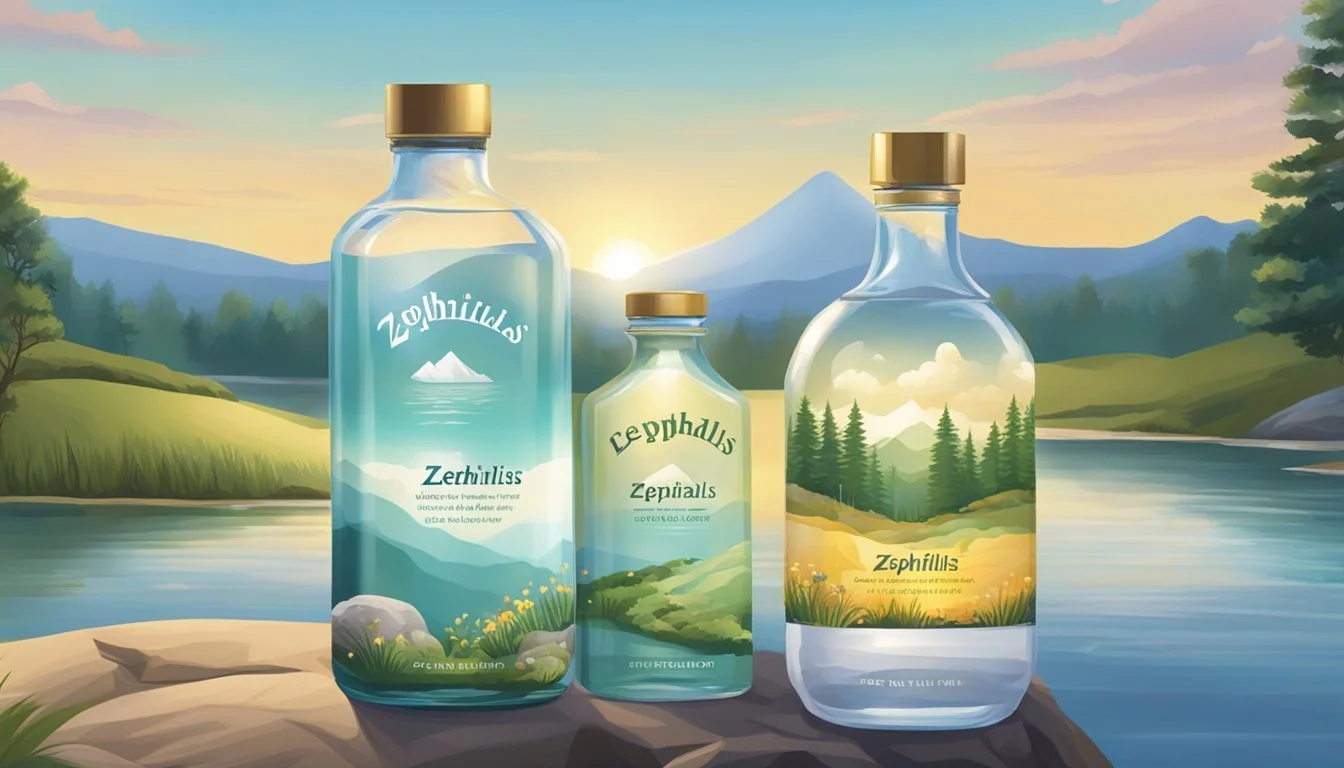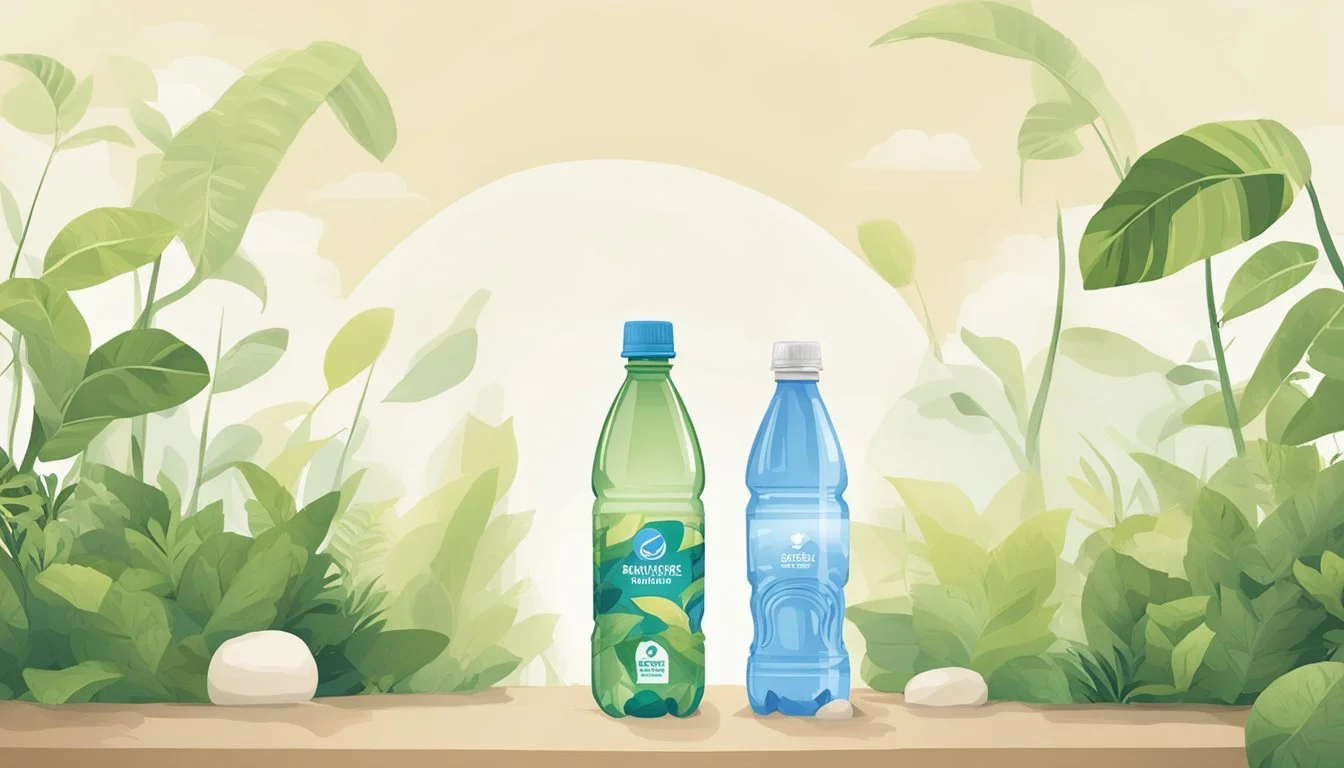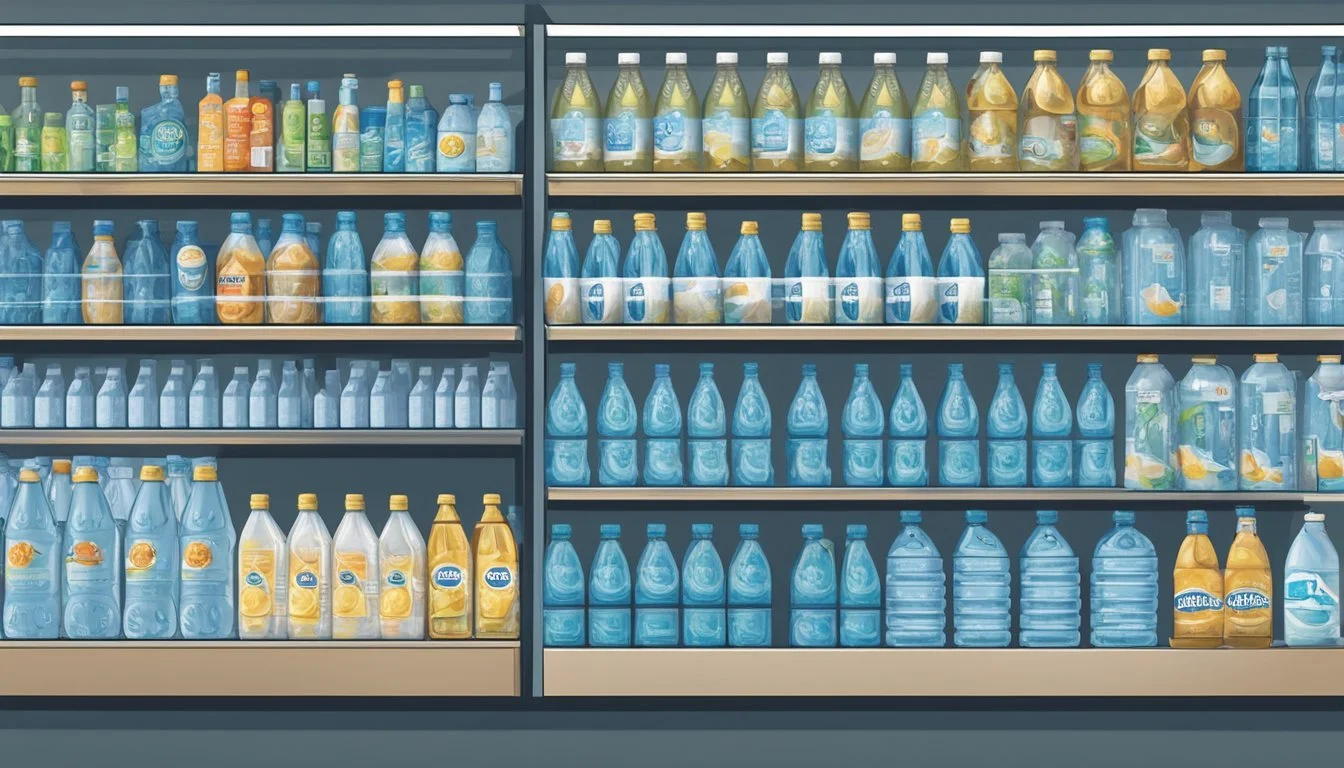Ethos vs. Zephyrhills
A Comparative Analysis of Bottled Water Quality
In the realm of bottled water, brand choice can be more significant than it appears at first glance. Consumers often have strong preferences based on taste, quality of the source, and the treatment process the water undergoes. Two names that frequently come to mind are Ethos and Zephyrhills—both have carved out a niche for themselves in a saturated market, yet they offer distinct choices to buyers.
Ethos Water presents itself as a socially responsible brand, with a portion of its profits directed towards solving global water crises. Behind its philanthropic appeal, Ethos is sourced from public water sources and is purified through a process that includes reverse osmosis and ozonation. Zephyrhills, on the other hand, stakes its reputation on being a natural spring water sourced from Florida springs. It appeals to those who prefer their water to be minimally processed, promising a taste that is as close to nature as possible.
The decision between Ethos and Zephyrhills ultimately boils down to personal values and taste preference. On one hand, Ethos offers a pledge of social responsibility and a purified product, while Zephyrhills draws consumers with its natural origins and regional heritage. Each brand thus reflects a different ethos, appealing to different aspects of what consumers may seek in their choice of bottled water.
Backdrop: The Bottled Water Industry
In recent years, the bottled water industry has transformed from a convenience-driven market to a global phenomenon where brand perception and environmental consciousness significantly influence consumer choices.
Bottled Water Brands Overview
The landscape of bottled water brands is as varied as it is vast, comprising international giants and niche specialty brands. Nestlé steers the market with its Pure Life brand, while companies such as Dasani and Aquafina, backed by Coca-Cola and PepsiCo respectively, command a significant presence. Premium brands like Fiji, Voss, and Evian offer distinct mineral compositions and packaging appeals. Niche players like Ethos Water and Icelandic Glacial market their social responsibility and exotic sources. Organizations such as the International Bottled Water Association play key roles in steering industry standards among these diverse brands.
Environmental Implications of Bottled Water
Despite the industry's growth, the environmental impact of bottled water consumption raises considerable concern. Plastic bottles, often made from non-renewable resources, contribute substantially to pollution and landfill waste. Recycling initiatives struggle to keep pace with the production and disposal rates. Efforts for sustainability have paved the way for alternative packaging, such as Boxed Water and aluminum cans by La Croix. Companies are increasingly called upon to adopt eco-friendlier practices and invest in environmental stewardship, resonating with a consumer base that is growing ever more environmentally conscious.
The Contenders: Ethos Vs. Zephyrhills
In the arena of bottled water, two distinguished brands stand out: Ethos Water and Zephyrhills. They distinguish themselves not only through their taste and source but also by their unique brand missions and consumer demographics.
Ethos Water: Brand Profile
Ethos Water began as a socially responsible brand aimed at helping children get access to clean water. It was acquired by Starbucks in 2005, and since then, it has become synonymous with the coffee giant's commitment to global welfare. Ethos Water sources its product with a focus on purity and sustainability, and for every bottle sold, a portion of the profits is dedicated to supporting water, sanitation, and hygiene education programs in water-stressed countries.
Parent Company: Starbucks
Mission: To help provide children with access to clean water
Contribution: A portion of each sale supports water-related programs
Zephyrhills: Brand Profile
Zephyrhills is a brand of spring water that comes from the natural springs of Florida and is owned by Nestlé Waters North America. The brand prides itself on delivering fresh-tasting, high-quality water from sources close to the communities it serves. Zephyrhills emphasizes its local roots and commitment to sustainability within Florida, offering a product that resonates with both the taste and the environmental values of its customers.
Parent Company: Nestlé Waters North America
Source: Florida natural springs
Values: Local sourcing, sustainability, fresh taste
Source and Quality of Water
When comparing bottled water brands like Ethos and Zephyrhills, the source of water and adherence to quality standards are pivotal factors for consumers to consider. These elements directly influence the water’s purity, taste, and overall health benefits.
Understanding Water Sources
Ethos water is branded as supporting humanitarian water programs, but its exact sources are not specified in common knowledge. It is often categorized under the spring water label, indicating that it may originate from natural springs. On the other hand, Zephyrhills is a brand known for using natural spring water sourced from various springs in Florida. These sources include Crystal Springs, Cypress Springs, Blue Springs, and others, which contribute to its reputation for taste and purity.
Spring water and mountain spring water are sought after for their perceived natural purity and minimal human interference. They must meet specific FDA regulations to ensure safety. Contrarily, some bottled waters may originate from groundwater or even tap water, which undergoes purification treatments before bottling.
Water Quality and Standards
The Environmental Protection Agency (EPA) regulates tap water, while the Food and Drug Administration (FDA) oversees bottled water. Both Ethos and Zephyrhills must comply with FDA regulations, which are as stringent as the EPA's, ensuring that water is safe from contaminants like heavy metals, arsenic, lead, and chlorine.
Quality reports are available from bottled water companies to demonstrate compliance. These reports detail levels of various substances and provide transparency on water quality. For instance, Zephyrhills publishes water quality reports that inform consumers about the presence of substances such as minerals and potential contaminants.
Consumers can compare the quality of Ethos and Zephyrhills by reviewing these reports, keeping in mind the presence of natural minerals which can be beneficial for health, and the absence of harmful contaminants like heavy metals (including arsenic and lead) and disinfectant byproducts like chlorine.
Health and Hydration
Choosing the right bottled water is important for maintaining good health and optimal hydration. In comparing Ethos and Zephyrhills, one should consider mineral content, purity, and how these factors contribute to hydration and overall well-being.
Benefits of Hydration
Hydration is essential for various bodily functions, including temperature regulation, joint lubrication, and nutrient transport. Ethos water and Zephyrhills are both designed to provide hydration, but their mineral contents and source may influence their effectiveness in maintaining hydrated states.
Ethos: Known for supporting charitable water programs, with a focus on clean water initiatives.
Zephyrhills: A popular brand sourced from Florida spring water, often praised for its natural taste.
Minerals and Water
Minerals and electrolytes in water enhance hydration by improving electrolyte balance in the body.
Ethos:
Calcium: Essential for bone health.
Magnesium: Aids in muscle functions.
Zephyrhills:
Potassium: Important for nerve function.
Magnesium: Also contains magnesium aiding in muscle function.
Both brands contain essential minerals which contribute to their hydrating properties.
Concerns and Safety
Safety concerns for bottled water include potential chemical exposure and environmental impact.
BPA: A chemical used in some plastics that can seep into water. Both Ethos and Zephyrhills offer BPA-free bottles, reducing health risks associated with BPA exposure.
PFAS Chemicals: Industrial compounds that may contaminate water sources. Both brands comply with safety standards to minimize PFAS levels.
Electrolytes: While beneficial for hydration, excess intake in water can cause imbalance in some individuals. Ethos and Zephyrhills contain electrolytes at safe levels for consumption.
Consumers should be mindful of these factors when selecting bottled water for health and hydration.
Water Taste and Purity
When selecting bottled water, consumers often prioritize two key aspects: taste and purity. These factors are largely influenced by the water's source and the treatment processes it undergoes.
The Taste of Water
For many people, the taste of water is a crucial determinant in their choice of brand. Ethos Water is known for its clean, crisp taste, often attributed to its filtration process. Zephyrhills, on the other hand, is sourced from Florida's natural springs and is reputed for a taste that reflects its fresh, natural origins.
Purification Processes
Ethos Water undergoes a rigorous purification process. This includes reverse osmosis and other filtering methods, such as their proprietary Hydro-7 filtration process, designed to remove substances that may affect water taste and purity. Zephyrhills is typically treated with disinfection methods to ensure safety and maintain its fresh taste. While not employing reverse osmosis, Zephyrhills ensures the purity of its spring water with a careful selection of source springs and regular quality testing.
Packaging and Accessibility
When evaluating bottled water brands such as Ethos and Zephyrhills, consumers often take into account the design and sustainability of the packaging, as well as the ease with which they can access these products.
Bottle Materials and Design
Ethos Water, a brand associated with Starbucks and part of the Coca-Cola family, offers a distinct packaging design. Their bottles are made primarily from plastic, which has drawn attention to environmental concerns over plastic waste. However, Ethos bottles are notable for their commitment to incorporating a significant proportion of recycled plastic to reduce the environmental impact.
Zephyrhills, a brand under the umbrella of Nestlé Waters, similarly uses plastic in their bottles. Although concerns about bisphenol A (BPA) presence in plastics have led many companies to adopt BPA-free materials, Zephyrhills assures consumers that their single-serve bottles are indeed BPA-free. The brand's design is recognizable and emphasizes its sourcing from Florida’s natural springs.
Distribution and Accessibility
Ethos Water is widely accessible primarily through Starbucks stores across various states, presenting an advantage for coffee shop visitors looking for water alongside their beverage. The brand's distribution leverages Starbucks’ extensive retail footprint, enabling a broad reach to consumers who value the brand's ethical stance on water accessibility in developing countries.
Zephyrhills enjoys widespread supermarket and retail distribution, particularly in the southeastern United States. With products ranging from small single-serve bottles to larger multi-gallon dispensers, Zephyrhills caters to both individual consumers and businesses. Zephyrhills’ extensive distribution network ensures their products are accessible across a variety of retailers, from small convenience stores to major grocery chains.
Consumer Information and Advocacy
When choosing between bottled water brands like Ethos and Zephyrhills, consumers have tools at their disposal to make informed decisions. Understanding the fine print on labels and quality reports can empower them, while advocacy and investigative journalism often reveal deeper insights into industry practices.
Understanding Labels and Reports
Consumers should examine water quality reports and labels closely to understand the source and composition of their bottled water. Quality reports, which can be found on brand websites or requested from companies, detail specific measurements such as pH levels and the presence of minerals, which are essential for water quality assessment. Labels provide quick info but may lack detail.
To exemplify, a label might read "spring water," indicating the water is sourced from an underground formation from which water flows naturally to the earth's surface, but may not reveal the exact pH level. Quality reports fill in these gaps offering comprehensive info, which can also reflect in the taste and suitability of the water for different consumers' needs.
Advocacy and Investigative Reporting
Journalists like Ryan Felton use platforms such as Twitter to engage with the public on matters of corporate malfeasance. Felton, known for his work on dangerous products like tires, auto safety issues related to subprime lending, and more, represents the importance of investigative journalism in holding corporations to account for their claims and practices.
Those concerned about the practices of bottled water companies can follow journalists or contact them through email or Signal to share a tip if they have relevant information or suspicions. Felon's contact information, for example, could be available on his Twitter profile or professional webpage, enabling consumers and whistleblowers to deliver tips that can lead to further investigation and advocacy.
Conclusion
In comparing Ethos Water and Zephyrhills, several factors including source, taste, and company ethos come into play.
Bottom Line Comparison
Ethos Water:
Source: Ethos Water sources its water with a focus on social responsibility.
Taste: It offers a clean, crisp tasting water experience.
Company Ethos: As part of Starbucks, Ethos Water dedicates part of its proceeds to global humanitarian water programs.
Zephyrhills:
Source: Zephyrhills is known for its natural spring water from Florida.
Taste: It is often described as having a fresh taste characteristic of spring water.
Company Background: Owned by Nestlé, Zephyrhills is one of many brands offering bottled water.
When considering which bottled water is better, consumers weigh the products’ attributes and the values of the companies behind them. Ethos Water appeals to those who prioritize social impact alongside quality, while Zephyrhills may attract those who prefer the taste and origin of spring water. The decision between Ethos Water and Zephyrhills ultimately depends on personal preferences and values regarding environmental impact and corporate responsibility.








